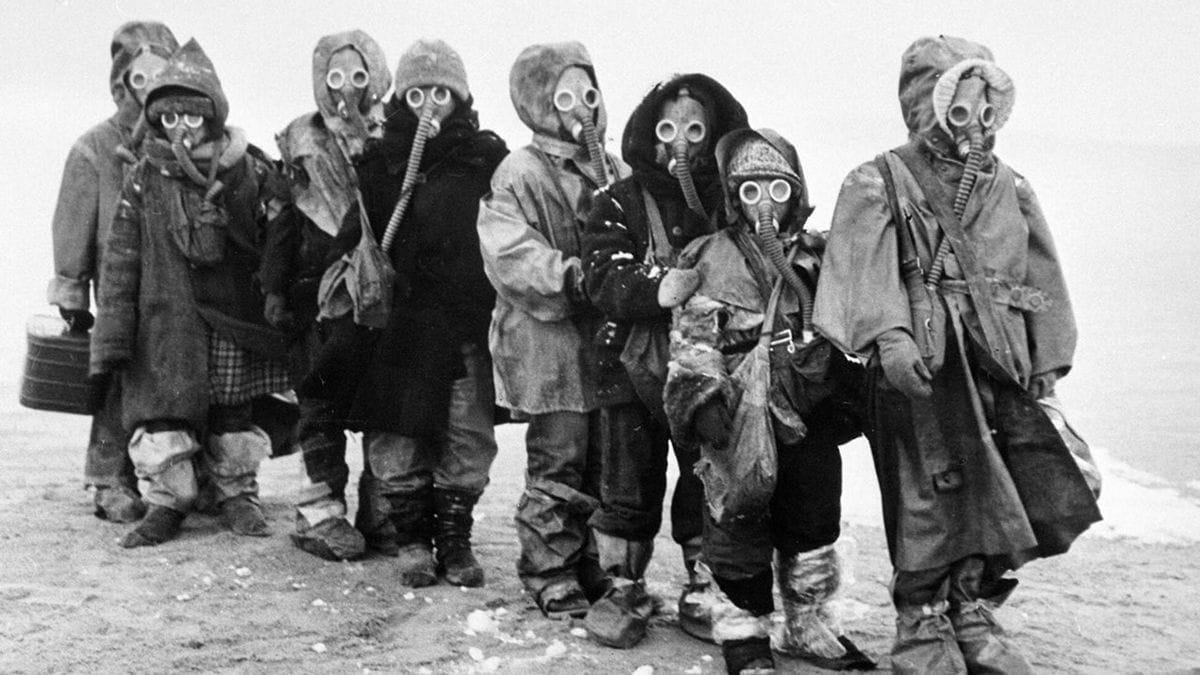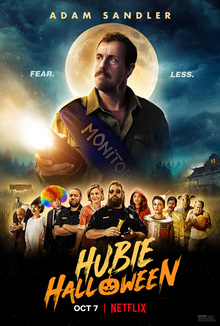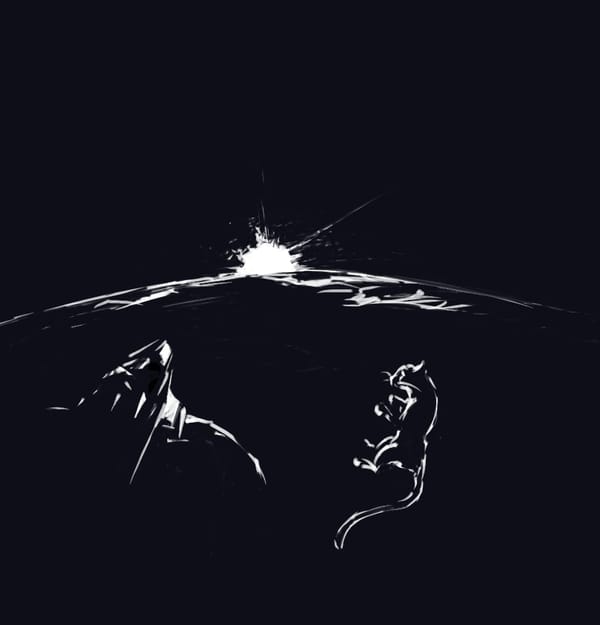Classic of the Week: Dead Man's Letters
Film editor Oliver Weir discusses the little-known classic 'Dead Man's Letters', by Konstantin Lopushansky.

We open in a land annihilated by nuclear war, a land where the streets are strewn with charred bodies and muddy fallout, a land where shallow graves are dug in living rooms. Outside the underground hovels that many call home there lives only rubble and radiation. Curfews are kept with brutal enforcement, such that only the dead are allowed outside. All culture has been obliterated, and the libraries stand half-submerged in black morasses. “All the old values are gone”. Morale is low, and death a mercy to many. As one man says before his suicide: “Death is not a frightening thing when everything has died”. Professor Larsen—a former recipient of the Nobel Prize in physics—begins a letter to his lost son Eric: “My dear boy…I am working, can you imagine that?”.
This is the bleak world of Dead Man’s Letters. And yet, despite the desolation, the cruelty, and the decay, there is no other film I know of that has a more humanitarian message. Made in 1986—in the days of Chernobyl, Gorbachev, and Reagan—when the threat of nuclear disaster, by accident or premeditation, was still eerily present in the world, Dead Man’s Letters stands out as a dissenting voice against rapacious governments thirsty for nuclear armaments. It appeals directly to the emotions, in the hope that the mind will be enlightened by them and see the folly in war, come ‘hot’ or ‘cold’. While it did screen at Cannes in 1987, its exposure in the West was slow and fleeting—its New York Times review, for example, came out in 1989. This is of course no surprise—olive branches often find themselves getting conveniently snapped as they are extended.
In the world of cinema, 1986 was a dismal year: it saw the release of Andrei Tarkovsky’s final movie The Sacrifice in May, followed by his untimely death in December at the age of 54. Around this time the baton of Russian artistry seems to have fallen into the hands of Konstantin Lopushansky. Throughout Dead Man’s Letters, he unravels his message regarding the sanctity of life, eloquently expressing his fear that modern culture has cheapened it, and modern warfare disregarded it. Such appeals to the soul, and to the goodness of people, naturally evoke strong intimations of Tarkovsky. These similarities are no coincidence: Lopushansky was intimately involved in Tarkovsky’s work, having helped direct Stalker in 1979.
The central dilemma—of saving humanity when it seems that all is lost—is channelled through Larsen. He has “logical theories” that try to ascertain the chance of humanity’s continuation, all he needs is time. However, the people around him are packing up their few remaining possessions to make the perilous journey from the museum basement where they’ve been lodging, to the “central bunker” where they may be safe. Larsen's life is further complicated by the arrival of twelve orphans. They never speak, they never cry, and they never imagine that life could be lived any other way.
The resolution to the story and the thrust of Lopushansky’s message culminate in the final few scenes—the last of which is so transcendently beautiful, and yet so viscerally bleak, that it may be my favourite ending of any film. Having been left to take care of the orphans by himself, Professor Larsen helps them decorate a Christmas tree. Sapped of life and answers, he then goes the way of his wife and young son Eric. An orphan tells us that Larson led them outside to look for stars, but that “there were no stars in the sky, for the darkness took over the world”. Then, seeing him on his deathbed, in the dim light of the Christmas tree, they all gather around to look into the eyes of the old world. “Remember: the world has not died”, he tells them, “go while you have the strength, for while a man is on his way, there is still hope for him”. And so, in coats they had no time to grow into, in boots too big to cross the tundra and the snow, the children wander hand-in-hand, as they have seen the adults do, unaware that the world has abandoned them, but quite sure that they must not abandon each other.
Directed by: Konstantin Lopushansky
Starring: Rolan Bykov
Year of Release: 1986






